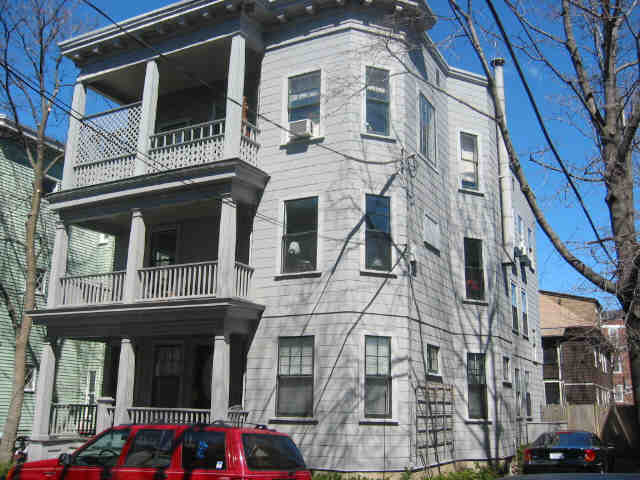Oppose the Housing Bond Bill Through the EOHLC Housing Survey
. Posted in News - 0 Comments
By Kimberly Rau, MassLandlords, Inc.
The Executive Office of Housing and Livable Communities (EOHLC) has launched a survey looking for residents’ thoughts on the housing crisis in Massachusetts. The feedback will ostensibly help shape the state’s five-year strategic housing plan. This an excellent opportunity to voice your thoughts on housing matters in Massachusetts, particularly in relation to the proposed housing bond bill currently before the governor. We strongly oppose all policy sections in the bill.

The EOHLC is asking for feedback about housing in Massachusetts. One of the biggest roadblocks to fixing the housing crisis is the current housing bond bill. (Image: Public Domain, EOHLC)
193 H.4138, also known as the Housing Bond Bill, stands to effect major change in housing policy. Some of these changes are receiving enough pushback that a referendum vote may be possible if they pass.
What can you do? If you are inclined to speak out on these matters, we have prepared some talking points. However, we aren’t suggesting anyone spam the EOHLC. If you choose to take the survey, only take it once.
The EOHLC survey asks participants to report what has been working well in their communities when it comes to housing. It also asks for the perceived biggest housing challenges in the community, and potential solutions or strategies for overcoming those obstacles. There’s also a section at the end that asks for additional commentary.
All Policy Sections Should Be Removed From 193 H.4138
Housing bond bills are supposed to be clean spending bills. That is, every item on the bill should have a dollar figure attached to it. This bill has multiple non-monetary lines that seek to change the way things operate instead of simply funding existing processes. Bills with funding that keep things moving along are relatively easy to pass. Process-change bills are historically harder to get through. By tying the two together, the legislature is hoping to sneak in major policy changes along with a badly needed bill to fund public housing.
This effectively “dirties” what should be a cut-and-dried (“clean”) spending bill. Additionally, some of these sections are so contentious that, should it pass, a referendum vote seems possible. Small housing providers, single-family property owners and brokers are opposed to many of the measures listed.
There are three primary controversial areas: eviction sealing, accessory dwelling units and the proposed transfer tax.
Eviction Sealing Unites Small Property Owners Against Bond Bill
Eviction sealing has been proposed as a way to help renters with an eviction record obtain rental housing more easily. In reality, housing providers need to understand an applicant’s housing history and evaluate it on a case-by-case basis. If it passes, landlords will not be able to complete thorough applicant screenings, and applicants will not be able to learn whether their landlord has a reputation for unnecessary evictions.
Worse, rental housing quality will sharply degrade for existing renters. It’s already difficult to remove tenants who violate the lease by smoking in non-smoking buildings, ignoring quiet hours or threatening violence. If eviction sealing passes, landlords will be powerless to identify problematic renters before a lease is signed.
This is the biggest issue in the bond bill for housing providers and renters, who are uniting against it.
ADU Provision Creates Opposition Among Single-family Owners
Accessory Dwelling Units (ADUs) have been touted as a way to increase available housing. We’ve spoken in favor of them before, and have compiled resources that allow you to see what the laws are in your area.
However, ADUs are often met with strong opposition from single-family homeowners, some of whom do not want to see additional rental housing in their neighborhood. Lowell had an ADU proposal on the table that was soundly defeated in early 2024. The people leading the charge? Single-family property owners.
And, as good as ADUs sound, data shows that, so far, they create very little housing. That means landlords won’t be wasting much time fighting for them. Zoning reform is needed, but sweeping opposition under the rug does not lead to consensus that supports effective, lasting change.
Single-family homeowners are likely already weighing in to oppose ADUs in the bond bill.

“Mansion Tax”? Hardly. Most multifamily homes in the greater Boston area will be affected by the proposed transfer tax. (Image: CC by SA Brian Corr)
“Mansion Tax” Affects Almost All Rental Housing; Garners Opposition from Realtors and Brokers
193 H.4138 also includes a provision that would grant municipalities the right to impose a 0.5% to 2% property transfer tax on property sales over $1 million. The revenue from this tax would support affordable housing projects. Billed by some as the “mansion tax,” given the cost of housing, this transfer tax would actually impact any sales of property duplex-sized or larger in the greater Boston area.
This provision has support from some community leaders, at least some of whom have been asking for transfer taxes for years. However, many landlords will be affected and oppose it. It also is strongly opposed by realtors and brokers. The Greater Boston Real Estate Board has launched a “Yes to new housing, No to new taxes” campaign against it.
Conclusion
The bond bill should not pass for all the opposition from single-family and small property owners, housing providers, our good renters, realtors and brokers. There is so much objectionable in it that it creates a “strange bedfellows” coalition of broad-based opposition.
But there’s another issue here as well. The bond bill was profoundly ill-advised. The administration only looks to renter nonprofits like CHAPA and MAPC. These groups have systematically excluded housing provider views or worked to undermine our input.
MassLandlords was not invited to participate on either of the two housing counsels created by the governor. Nor were we alerted to feedback sessions. When we asked to provide input another way, our lawful public records suit going on at the time was used as a reason EOHLC couldn't talk to us at all. Just as this was going to print, EOHLC had their new hire of two months, a landlord outreach coordinator, call our executive director of 10 years asking if EOHLC could “partner up.” We explained politely there was a lot of ground to cover before that could happen.
Landlords provide a huge chunk of housing for the state. Nearly 40% of Massachusetts residents rent instead of own. In Boston, that number is more than 60%. And two-thirds of this housing is provided by small operators who know and respect our renter customers. It’s very clear, or it should be: If the EOHLC doesn’t start involving housing providers in earnest, they will never solve the housing crisis. Respectfully sharing your voice through their survey is one small way we can be heard.




